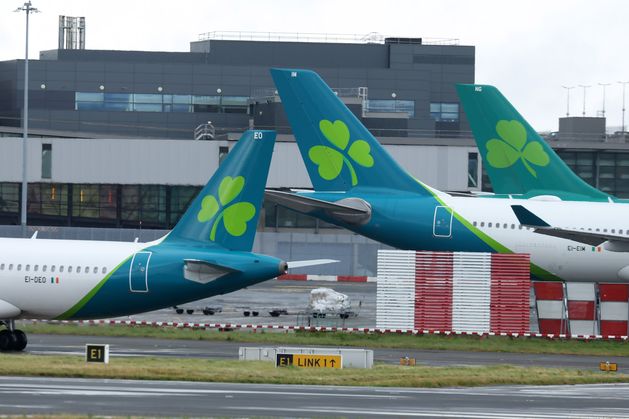Bussiness
Aer Lingus says pilot strike would cost airline up to €25m a day as action could begin as early as next week

Hotels lobby also concerned about impact of industrial action on domestic tourism
The airline’s chief corporate affairs officer, Dónal Moriarty, said last night that any such action would have a hugely damaging impact on the carrier’s reputation across Ireland, the US and Europe.
“It appears to be designed to inflict the maximum disruption on the travelling public, in terms of timing, if it is to happen,” he said of the strike threat.
Aer Lingus pilots could announce strike dates as early as today after they voted overwhelmingly in favour of industrial action in a fresh ballot at the weekend. Their union is legally required to give Aer Lingus a minimum of seven days’ notice, meaning their action could begin next week.
The pilots are looking for a near 24pc pay increase. That would cost Aer Lingus between €40m to €45m a year. The IAG-owned airline has offered a 12.25pc pay increase, while the Labour Court recommended an interim increase of 9.25pc, which was rejected by the pilots.
Any action announced by the Irish Airline Pilots’ Union (Ialpa) today could include all-out strike days or a work-to-rule. Either scenario would significantly affect flights at the airline, which during the busy summer period carries about 40,000 passengers a day.
If a strike is called, between 90pc and 95pc of those passengers won’t get to fly. A strike will also have a knock-on impact the day after. About 14,000 of its passengers on summer days are on transatlantic services, with 26,000 on short-haul routes throughout Europe.
The daily loss the airline is projecting by a strike includes the cost of compensating passengers, hiring in additional aircraft, rerouting customers and lost bookings. With other airlines also typically booked out during the summer, the options for rescheduling passengers on other services are severely restricted.
Mr Moriarty said there appeared to be a “determined approach” by Ialpa to initiate industrial action.
“We will be indicating to passengers what their options are and how we can help them, but the disruption will be significant,” he said. “If it’s work-to-rule, we would have to assess the form of that and determine what impact that would have on our operation, but we’d have to see the detail of that.”
Ialpa, which represents almost 800 pilots at Aer Lingus, said yesterday that it was now consulting its umbrella union, Fórsa, in relation to its next steps.
Holidaymakers urged to ‘stay calm’ as fears grow of strike by Aer Lingus pilots
The union said its pilots were now “more determined than ever” to secure their pay claim.
Irish Hotels Federation president Michael Magner said the strikes could have “a very negative impact” on the hotel industry.
“To have a strike like this, particularly in what is almost peak season, is unwelcome and disappointing. It’s important that this doesn’t go ahead, because it could impact so much of the economy in terms of hotel stays, other tourist attractions and experiences as well.”
A paper ballot by pilots was taken over the weekend after a previous electronic ballot was questioned by Aer Lingus.
Ialpa president Captain Mark Tighe said the result of the second ballot was “an incredible reaffirmation of our mandate for industrial action in pursuit of a meaningful pay offer”.
Captain Tighe said the pay claim was “to ensure that pilots’ pay has the same purchasing power as it did in 2019”.
Airlines have to pay compensation to passengers under EU rules only if the carriers cancel their flights 14 days or fewer before their scheduled departure. Aer Lingus has asked Ialpa to give it 15 days’ notice of any action.
Mr Moriarty insisted the request of 15 days’ notice was not to circumvent the compensation rules.
“That’s not the motivation,” he said. “The motivation was to get as much time as was possible to reaccommodate as many of our customers as possible.”
The Department of Transport called for a resolution to be reached “to avoid any action that would disrupt the travel plans of many thousands of passengers this summer and which would be detrimental to our tourism industry”.










